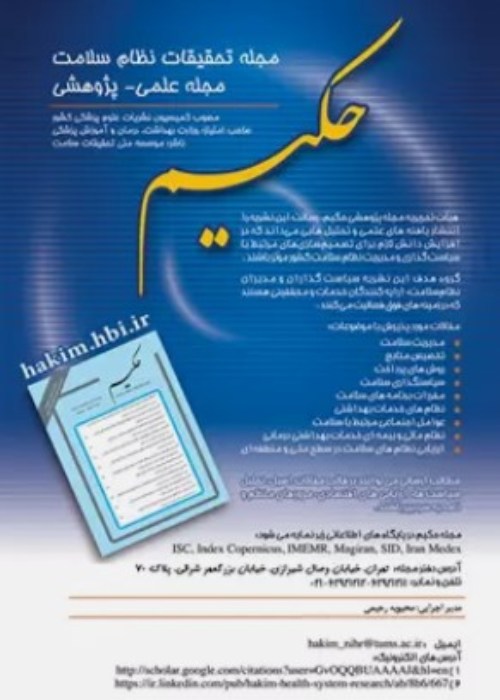Assessment of mutagenicity and carcinogenicity of Tehran's air pollutants with Ames test
Author(s):
Abstract:
Introduction
With increasing development of technology and use of different types of fuels, environmental pollutants are increasing more and more in volume. Air pollution is an important issue with regard to its role in affecting human population health and especially the children. Studies in other countries have shown that the exhaust particles resulting from gasoline and diesel motors contain large amounts of mutagens and carcinogens including Polycyclic Aromatic Hydrocarbons (PAHs). Methods
There are different methods for mutagenesis assessment of PAHs and other organic substances available in air pollutants among which the "AMES" method is the easiest, fastest, and the most cost-effective one. This method has been introduced by Dr. Bruce N. Ames in 1967. The Ames method uses different strains of Salmonella typhimurium bacteria, which are genetically manipulated so that they can not grow in media without histidin. These bacterial strains are cultivated in histidin-free media and the substance, whose mutagenicity is under investigation, is also added to the medium. If the substance is mutagen, the bacteria will transform to mutant strains and will be able to synthesize histidin and therefore will begin to grow. Investigations with the Ames method have shown that 83% of substances which are identified as mutagen with this method are carcinogen. We applied this method in the current study. Seventy six ambient air samples were collected on fiberglass filters using a "High Volume Sampler Set" during the spring, summer, and fall. The organic substances of the samples were extracted by dichloromethane and Soxhlet. The bacterial Strains (TA98 & TA100) were provided by the courtesy of Dr. Ames from the United States upon our contact with him and genotypes of the bacteria were confirmed using the pertinent assay methods. The extracted samples were assessed with the Ames method at three different concentrations of 0.8, 1.6, and 3.2 mg of dry material per 100 µl solvent. One-way analysis of variance and Post Hoc tests were used for statistical analysis. Results
The results indicated the presence of mutagenic substances in Tehran's air pollutants. Findings from TA98 and TA100 strains demonstrated that the mutagenicity ratios of the organic substances had significant differences with the critical value of two, for concentrations of 1.6 and 3.2 mg/100 µl. The mutagenicity ratios calculated for samples collected in spring, summer, and autumn did not have any significant difference with each other at the three tested concentrations. Also the mean colony counts did not demonstrate any significant difference in the mentioned seasons and at the three concentrations, but the colony counts were lower than the colony counts of the negative control group at the three concentrations (P value = 0.001). Conclusion
Comparison of our results with those form studies in other countries shows that the mutagenesis rates of Tehran's air pollutants are more than the similar rates in other countries in some cases. This is alarming for the authorities in order to do more efforts for decreasing the air pollution, especially in Tehran.Language:
Persian
Published:
Hakim Health Systems research journal, Volume:11 Issue: 1, 2008
Page:
29
magiran.com/p556416
دانلود و مطالعه متن این مقاله با یکی از روشهای زیر امکان پذیر است:
اشتراک شخصی
با عضویت و پرداخت آنلاین حق اشتراک یکساله به مبلغ 1,390,000ريال میتوانید 70 عنوان مطلب دانلود کنید!
اشتراک سازمانی
به کتابخانه دانشگاه یا محل کار خود پیشنهاد کنید تا اشتراک سازمانی این پایگاه را برای دسترسی نامحدود همه کاربران به متن مطالب تهیه نمایند!
توجه!
- حق عضویت دریافتی صرف حمایت از نشریات عضو و نگهداری، تکمیل و توسعه مگیران میشود.
- پرداخت حق اشتراک و دانلود مقالات اجازه بازنشر آن در سایر رسانههای چاپی و دیجیتال را به کاربر نمیدهد.
In order to view content subscription is required
Personal subscription
Subscribe magiran.com for 70 € euros via PayPal and download 70 articles during a year.
Organization subscription
Please contact us to subscribe your university or library for unlimited access!


